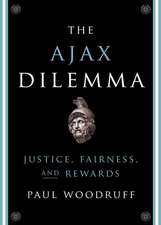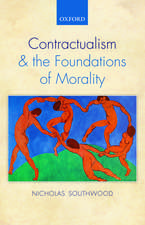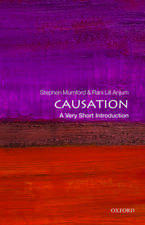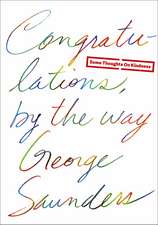The Ethics of Theory: Philosophy, History, Literature
Autor Professor Robert Doranen Limba Engleză Paperback – 16 noi 2016
| Toate formatele și edițiile | Preț | Express |
|---|---|---|
| Paperback (1) | 179.10 lei 6-8 săpt. | |
| Bloomsbury Publishing – 16 noi 2016 | 179.10 lei 6-8 săpt. | |
| Hardback (1) | 714.92 lei 6-8 săpt. | |
| Bloomsbury Publishing – 16 noi 2016 | 714.92 lei 6-8 săpt. |
Preț: 179.10 lei
Preț vechi: 207.80 lei
-14% Nou
Puncte Express: 269
Preț estimativ în valută:
34.27€ • 35.88$ • 28.36£
34.27€ • 35.88$ • 28.36£
Carte tipărită la comandă
Livrare economică 07-21 aprilie
Preluare comenzi: 021 569.72.76
Specificații
ISBN-13: 9781474225939
ISBN-10: 1474225934
Pagini: 240
Dimensiuni: 156 x 234 x 20 mm
Greutate: 0.36 kg
Editura: Bloomsbury Publishing
Colecția Bloomsbury Academic
Locul publicării:London, United Kingdom
ISBN-10: 1474225934
Pagini: 240
Dimensiuni: 156 x 234 x 20 mm
Greutate: 0.36 kg
Editura: Bloomsbury Publishing
Colecția Bloomsbury Academic
Locul publicării:London, United Kingdom
Notă biografică
Robert Doran is Professor of French and Comparative Literature at the University of Rochester, USA. He is the author of The Theory of the Sublime from Longinus to Kant and the editor of The Fiction of Narrative: Essays on History, Literature, and Theory, 1957-2007, by Hayden White, and Mimesis and Theory, Essays on Literature and Criticism, 1953-2005, by René Girard.
Cuprins
AcknowledgmentsIntroductionPart I: Philosophy1. Ethics beyond Existentialism and Structuralism: Sartre's Critique of Dialectical Reason and the Debate with Lévi-Strauss 2. Foucault's "Ethics of the Self"3. Derrida in Heidelberg: The Specter of Heidegger's Nazism and the Question of Ethics4. Richard Rorty's "Cultural Politics": Ironist Philosophy and the Ethics of ReadingPart II: History 5. From Metahistory to The Practical Past: Hayden White's Existentialist Philosophy of History 6. Hayden White and the Ethics of HistoriographyPart III: Literature 7. The Ethics of Conversion: Metaphysical Desire in René Girard and Jean-Paul Sartre 8. The Ethics of Realism: Literary History and the Sublime in Erich Auerbach's Mimesis 9. The Ethics of Philology: Erich Auerbach and the Fate of Humanism10. Edward Said, Orientalism, and the "Political Turn" in Literary and Cultural StudiesIndex
Recenzii
In this book, Robert Doran shows that the discourses of Theory require a fundamental ethics whose arc connects the subjective to the collective, the textual to the political. In analyses that are clearly written, historically grounded, philosophically astute, and attuned to a literary sensibility, Doran's formidable erudition leads to original transversal syntheses, such as the idea that key thinkers as diverse as Michel Foucault, Claude Lévi-Strauss, Jacques Derrida, René Girard, Richard Rorty, Hayden White, and Edward Said maintain a dialogue with Jean-Paul Sartre's concepts of choice, freedom, and bad faith. In addition, Doran has the rare distinction of having studied with many of the figures examined in this book, while remaining faithful to their teachings.
Robert Doran follows up his stunning history of the idea of the sublime with a complex, perspicuous, and authoritative exposition of the rise (and fall) of "Theory" in Western philosophy, literary studies, and historiography since World War II. Doran not only explicates the ethical considerations of Theory's advent and subsequent transformation; he also offers a model of a new kind of intellectual history, one that treats Theory as a symptom of cultural malaise as well as a resource for overcoming it.
Robert Doran follows up his stunning history of the idea of the sublime with a complex, perspicuous, and authoritative exposition of the rise (and fall) of "Theory" in Western philosophy, literary studies, and historiography since World War II. Doran not only explicates the ethical considerations of Theory's advent and subsequent transformation; he also offers a model of a new kind of intellectual history, one that treats Theory as a symptom of cultural malaise as well as a resource for overcoming it.

















